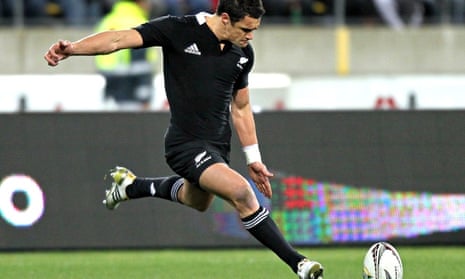Saracens are leading calls to scrap the Aviva Premiership salary cap, with the chief executive Edward Griffiths claiming it “has served its purpose.”
In a statement released on their website on Friday morning, Griffiths also said he believes he has the backing of six other English clubs.
Premiership Rugby introduced a salary cap in 1999. It is currently £5m per club, and will rise by £500,000 for next season, when clubs will also be able to nominate two marquee “excluded players”.
Griffiths’ reported comments come ahead of next year’s World Cup in England, after which many of the world’s top stars are expected to base themselves in Europe on lucrative club deals.
The New Zealand fly-half Dan Carter has already agreed a £1.3m per year contract with the wealthy French club Racing Métro, while the Australia back Adam Ashley-Cooper is to join Bordeaux-Begles.
“The salary cap has served its purpose,” Griffiths said. “It would be a pity if the world’s top players light up the World Cup on English soil, and then leave to play club rugby in France. If the salary cap is left to forbid the required investment, it will kill any hope of growth.
“English clubs must compete in the European Champions Cup against Irish and French sides spending two or three times as much on players.
“Imagine the likes of Arsenal or Manchester City being asked to compete with Barcelona, Bayern [Munich] and Real Madrid under those circumstances. It would never happen, but it happens in rugby.
“The combination of England hosting the Rugby World Cup in 2015 and Sevens featuring in the Rio Olympic Games in 2016 creates a historic, but fleeting, platform for rugby to grow dramatically.
“It is time to seize that opportunity, to ensure a level playing field in Europe, to build the strongest league in world rugby and to let players earn market-related salaries. We must release the handbrake and step on the accelerator.
“We understand some clubs fear the removal of the salary cap will cause wage inflation, yet in reality salaries are already being driven by the French clubs. We can either sit back and become a ‘lowest common denominator’ league, or we can leap forward.”
